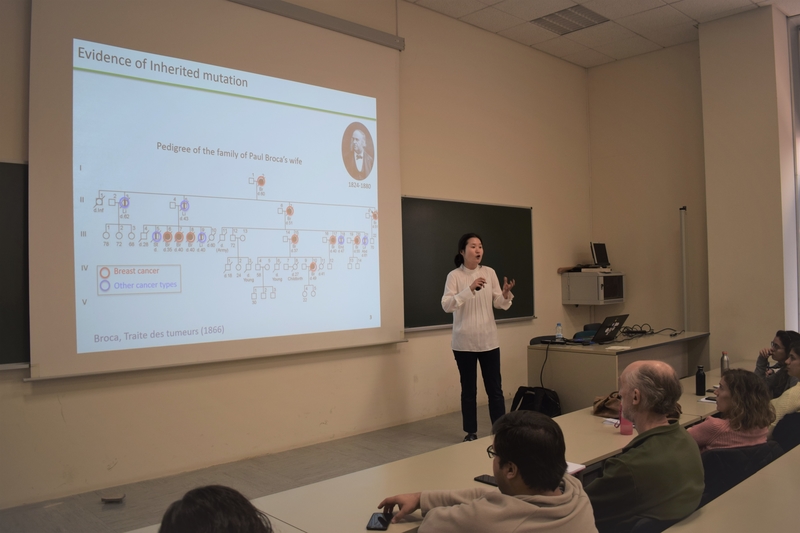Objectives
Click here to download the presentation.
Abstract:The genetic causes of cancer include both somatic mutations and inherited germline variants. Large-scale tumor sequencing has revolutionized the identification of somatic driver alterations but has had limited impact on the identification of cancer predisposition genes (CPGs). Here we present a statistical method, ALFRED, that tests Knudson’s two-hit hypothesis to systematically identify CPGs from cancer genome data. Applied to ~10,000 tumor exomes the approach identifies known and putative CPGs – including the chromatin modifier NSD1 – that contribute to cancer through a combination of rare germline variants and somatic loss-of-heterozygosity (LOH). Rare germline variants in these genes contribute substantially to cancer risk, including to ~14% of ovarian carcinomas, ~7% of breast tumors, ~4% of uterine corpus endometrial carcinomas, and to a median of 2% of tumors across 17 cancer types.
 Short bio: Park began her scientific career as a bioinformatician at POSTECH (South Korea), where, among other researches, she established novel molecular connections between comorbid disease pairs. Since 2012, she has been working at the Center for Genomic Regulation (CRG), where she has conducted large-scale studies of genomic cancer data. Solip Park will lead the Computational Cancer Genomics Group, CNIO.
Short bio: Park began her scientific career as a bioinformatician at POSTECH (South Korea), where, among other researches, she established novel molecular connections between comorbid disease pairs. Since 2012, she has been working at the Center for Genomic Regulation (CRG), where she has conducted large-scale studies of genomic cancer data. Solip Park will lead the Computational Cancer Genomics Group, CNIO.
Note: At the end of her scientific talk, Park will share her personal experiences as a female scientist in the field of computational biology.

Speakers
Solip Park, Computational Cancer Genomics Group Leader, CNIO

